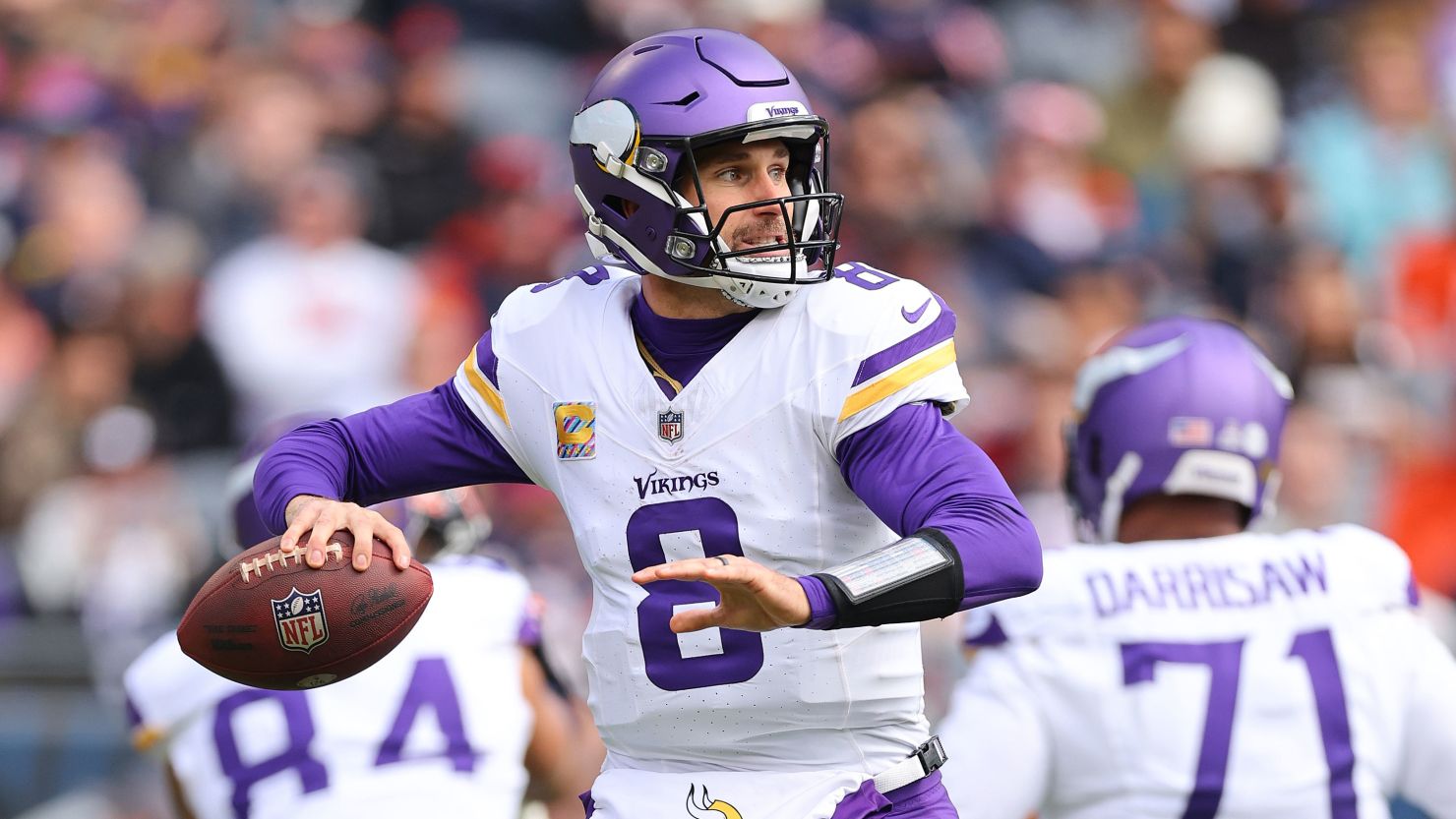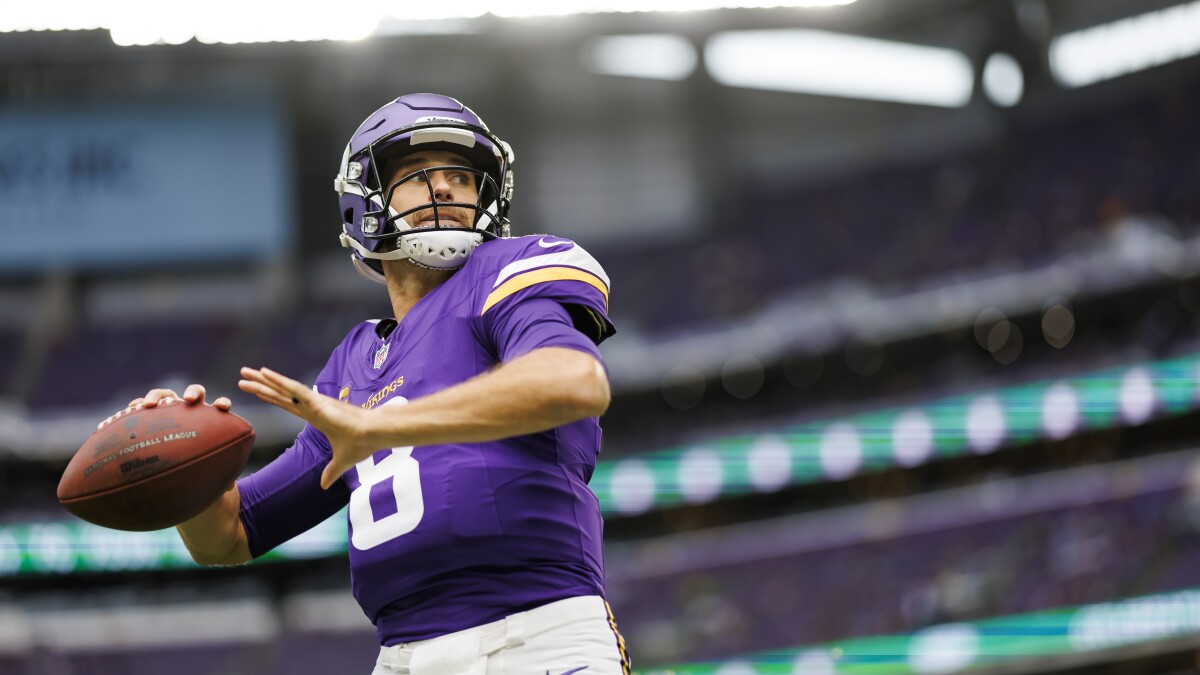The Atlanta Falcons find themselves navigating a particularly intricate situation with quarterback Kirk Cousins. As the team grapples with the implications of Kirk Cousins’ Achilles injury, questions about contract stipulations, future trades, and the drafting of Michael Penix Jr. loom large.

Kirk Cousins’, Atlanta Falcons Contract Details
During his inaugural press conference in Atlanta, Kirk Cousins disclosed that while he had passed the physical for his transfer, the Achilles tendon injury was still a pending issue, requiring a separate assessment. Intriguingly, the Falcons, unlike the Raiders with Jimmy Garoppolo the previous year, do not have an escape clause in Kirk Cousins’ contract. However, there is a notable exception regarding his substantial $50 million signing bonus.
According to insiders familiar with Kirk Cousins’ contract, the signing bonus is contingent upon him passing a physical, but it specifically excludes his pre-existing Achilles injury, provided he adheres to the prescribed rehabilitation under the Atlanta Falcons’ medical staff. This arrangement obligates the Falcons to honor the full payment as long as Cousins complies with the medical directives concerning his recovery.

Atlanta Falcons’ Flexibility and Trade Scenarios
The financial structure of Kirk Cousins’ contract offers the Falcons some flexibility moving forward. With Cousins owed a $27.5 million salary in 2025, and the possibility of trading him if he and the team decide to part ways after just one season, Atlanta could potentially mitigate the financial impact.
Notably, Cousins has a no-trade clause, but if both parties are amenable, trading him before June 1, 2025, would avoid additional guarantees worth $37.5 million, although it would still incur a substantial dead-money charge.
The contract design is such that if Cousins is traded in 2025, the Falcons would have paid him a total of $62.5 million for just one season. A trade post-2025 and before June 1, 2026, would result in a lower cap charge of $25 million, totaling $90 million paid to Kirk Cousins over two years.
This is awkward: One of the reasons Kirk Cousins left the #Vikings was because of their intentions to draft a quarterback high in the 2024 #NFL Draft, per @AlbertBreer
Kirk Cousins ended up signing with the #Falcons and they… drafting Michael Penix Jr with the 8th overall… pic.twitter.com/FzmGnnuGlo
— JPAFootball (@jasrifootball) May 6, 2024
The Michael Penix Jr. Factor and Strategic Shifts
The drafting of quarterback Michael Penix Jr. with the eighth overall pick introduces another dynamic to the Falcons’ strategy. While the team has hinted that Penix might sit for four to five years, the reality could see him stepping up much sooner.
The transition from Cousins to Penix might unfold within a year or two, particularly if Penix demonstrates readiness and capability during his initial seasons, or if an unexpected opportunity arises through trade interests from other teams.
Kirk Cousins Trade Scenario
There remains a speculative but feasible scenario where Kirk Cousins could be traded even before the 2024 season commences. If Penix excels during the Offseason Training Activities (OTAs) and a suitable trade partner emerges—perhaps a team in urgent need due to an injury to their starting quarterback—a trade post-June 1, 2024, could mirror the financial impact of a pre-June 2025 trade.
Moreover, the structure of Cousins’ signing bonus payments could facilitate such a transition, with a new team potentially covering the installments due in September and December 2024.

Atlanta Falcons Face Critical Decision Crossroads
The Atlanta Falcons’ management of Kirk Cousins’ situation reflects the broader complexities NFL teams face with high-value contracts, injury contingencies, and evolving team dynamics. As Atlanta navigates these challenges, the decisions made will have significant implications for the team’s financial health and competitive strategy in the coming years.
Whether sticking with Kirk Cousins in the short term or transitioning to Penix, the Falcons are poised at a strategic crossroads that will define their trajectory for seasons to come.










